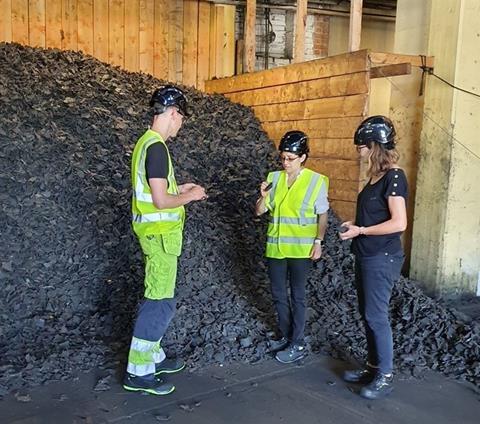
Scandinavian Enviro Systems (Enviro) is participating in a three-year project at Chalmers University of Technology in Gothenburg as part of an initiative to reduce the carbon footprint of West Sweden’s chemical industry. The collaboration aims to develop the next generation of Enviro’s pyrolysis-based recycling technology.
The project is part of innovation agency Vinnova’s ten-year Vinnväxt initiative Klimatledande processindustri (“Climate Leading Process Industry”). The initiative aims to support the West Sweden chemicals industry’s transition from its dependence on fossil fuel to an industry based on renewable and recovered raw materials. In addition to Enviro, other participants include Stena and the chemical company Borealis.
The sub-project involving Enviro’s technology addresses the recovery of complex polymers and is being led by the Division of Energy Technology at the Department of Space, Earth and Environment at Chalmers University of Technology. Chalmers is represented by associate professor Martin Seemann and postdoc scientist Nidia Diaz. As part of the project, the Chalmers scientists are visiting Enviro’s plant in Åsensbruk this week to see the process in operation and to investigate possibilities for taking joint measurements.
Through combining Enviro’s experience in pyrolysis with the latest research findings in the area, the parties hope to collaborate on developing the next generation of material recycling solutions using pyrolysis.
“The aim is to study the technology more closely to obtain a better understanding of it and to thereby be able to make future improvements,” says Martin Seemann.
“Thanks to our facility in Åsensbruk, we have more than ten years of practical experience with pyrolysis. The collaboration with Chalmers means that we can combine that experience with advanced research for the development of the next generation of pyrolysis-based solutions for different materials,” says Thomas Sörensson, CEO of Enviro.
In October last year Marvin Kusenberg, PhD student at Ghent University’s Laboratory for Chemical Technology in Belgium spoke to us about present and future applications of pyrolysis for recycling, and in December SABIC and Scientex announced a collaboration to convert ‘ocean-bound’ plastics into pyrolysis oil to produce flexible PP packaging.
If you liked this article, you might also enjoy:
The Lidl approach to packaging sustainability
How did Brazil achieve its 100% aluminium can recycling rate – and can it be replicated in the EU?
Experts have their say on the EU’s Packaging and Packaging Waste Directive revisions
A deep dive into the most important packaging sustainability trends and solutions














No comments yet